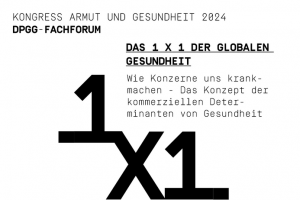Facing growing shortages of health care workers, high- income countries like Germany tend to find the solution in international recruitment of health care personnel. This practise adds to the uneven distribution of health workforce globally, following economic imbalances. This panel aimed to put a spotlight on the recruitment of health workers from India to Germany, following the signing of an agreement by the German and Indian Government in 2021. We wanted to stimulate a discussion on the global dimension of Care equality.
With:
Felix Litschauer (Global health advocate at medico international)
and Karen Spannenkrebs (doctor, co-chair of the Association of Democratic Doctors)
and Santosh Mahindrakar (MSc Public Health, nurse, health activist)
and Christa Wichterich (sociologist and publicist)















